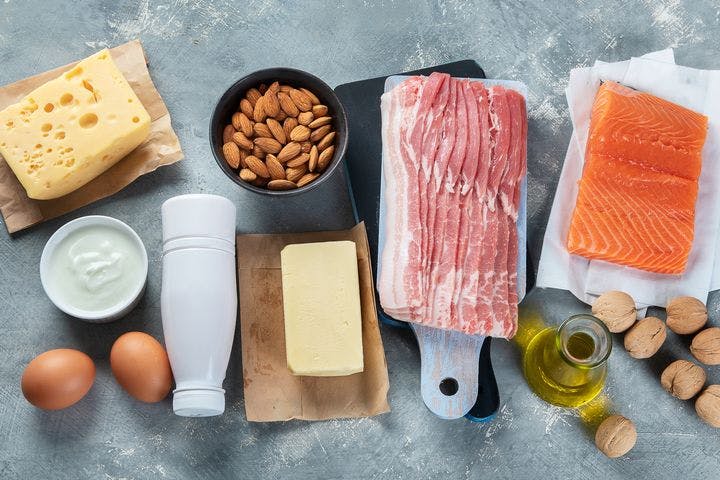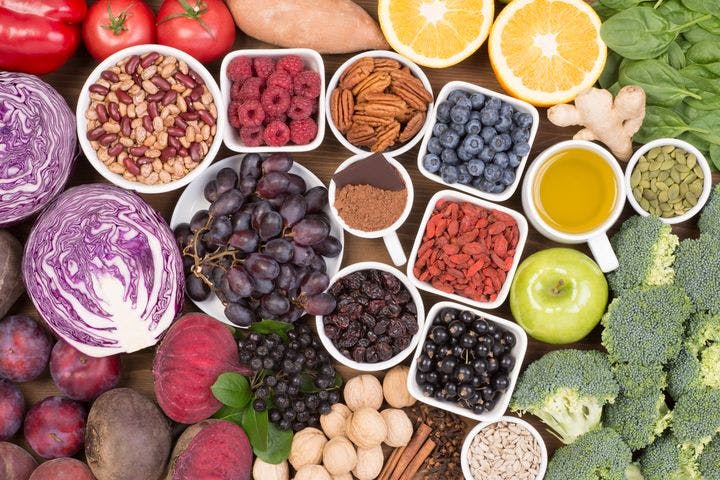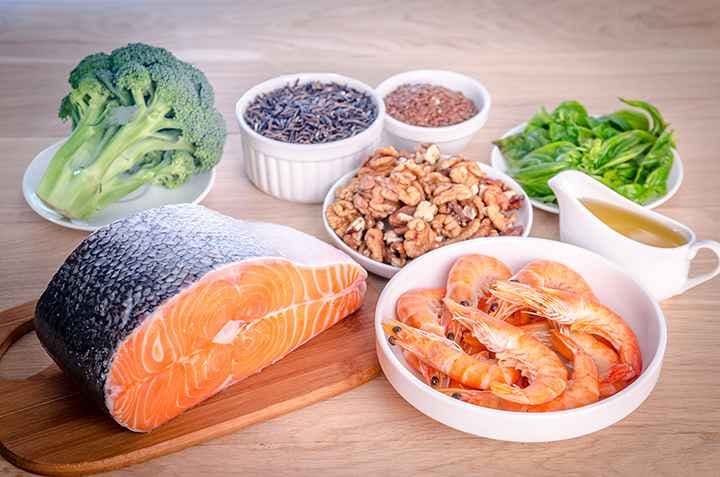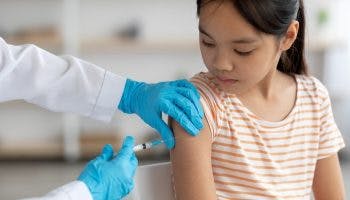6 Foods to Boost Your Child’s Brain Function
Published | 5 min read
Healthy brain function relies on a healthy body. Support your child’s intellectual development by supporting her nutrition with these foods.

These facts indicate that optimising early childhood nutrition is vital to ensure your child realises their full potential. Read on to learn about some key brain nutrients and what foods you can find these nutrients in.
Impact of Key Nutrients on Brain Function in Early Childhood
Decades-long research highlights a set of macronutrients and micronutrients that are specifically important for brain development and function.
Macronutrients

Amino acids from protein are needed by the brain to synthesise neurotransmitters. Neurotransmitters are chemicals forming connections between neurons (brain nerve cells) in a child’s growing brain.
Another essential macronutrient is polyunsaturated fatty acids (PUFA) such as omega 3. This group of macronutrients is involved in creating and migrating neurons in a developing brain.
Micronutrients

A growing brain also needs certain micronutrients. Iron is involved in the activity of proteins and enzymes needed for brain growth. It is also required for the development of hormone systems in early life.
Zinc, iodine, and vitamin B12 are crucial in the formation and transport of neurons, as well as the development of specialised structures and areas of the brain. Copper, choline, and folate are also involved in a host of important structural and neurotransmitter development in the brain.
6 Foods to Boost Your Child’s Brain Function

Here are 6 nutrient-rich brain-boosting foods to support your child’s optimal brain function.
1. Oily Fish
Oily fish such as mackerel and sardines are great sources of omega-3 fatty acids. Seafood is good for the brain as it contains other essential nutrients like zinc, iodine, iron, magnesium, potassium, vitamin D, vitamin B2, and protein.
The benefits of omega-3 consumed in the first 12 months of life are critical to cognitive development later in childhood. Hence, you should start incorporating these into your child’s diet early.
2. Eggs
Eggs are a great source of choline and vitamin B12. It is also another excellent protein source. Research has shown that choline, like copper and zinc, is important for cognitive development in the womb and during early infancy.
3. Lean meats
Not only are they another source of protein, but lean meats can also help ensure your little one gets enough iron in their diet. Today’s experts still agree on findings from an early landmark study on sufficient macronutrients (proteins, fats, carbohydrates). It showed children who received sufficient levels of these macronutrients before age two scored higher on reading, numeracy, reading, and vocabulary.
4. Beans
Your family may be
5. Leafy Greens
This one goes without saying, though it is worth repeating. Leafy green
Chlorophyta or green algae (lu zao, 绿藻) and leafy greens (spinach, arugula, and watercress) contain chlorophyll, the phytochemicals responsible for their bright green hue. Chlorophyll can maintain
Try to incorporate these early on to develop a vegetable-loving palate in your child. If your child isn’t keen, there are plenty of ways to “sneak” in these veggies without them knowing.
Ensuring your child gets enough iron early is critical to their brain development. Research confirms that catch-up iron supplementation can be too late, so getting adequate iron through diet is crucial.
6. Nuts, seeds, and berries
One group of brain-boosting foods that won’t need hiding are colourful, nutrient-rich nuts, seeds, and berries. Peanut butter, for example, is a tasty treat that’s also a good source of zinc
In Traditional Chinese Medicine (TCM), adding berries such as goji berries (gou qi zi, 枸杞子), hawthorn berries (shan zha, 山楂), and mulberries (sang shen, 桑椹) benefit the body in various ways
Hawthorn berry aids indigestion from the overconsumption of meat or fatty foods and overeating. It can improve blood circulation, digest fats, lower
Other Brain Boosters to Consider

Malaysian parents also have access to other knowledge bases in terms of child nutrition, such as TCM. Real Medical Senior TCM physician Brandon Yew highlights that insufficient nutrition can disrupt qi (vital energy) and blood circulation. “This can cause the formation and accumulation of pathogenic factors like Dampness, phlegm, Qi Stagnation and
Consider adding medicinal foods such as ginkgo biloba or ginseng to your child’s diet. Preliminary findings from a 2014 pilot study demonstrated cognitive improvement in children with
Acupuncture is another TCM modality that can benefit brain development and function. A 2018 study published in Rheumatology and Orthopedic Medicine found that acupuncture improved neural development in children with cerebral palsy, in contrast with rehabilitation training alone.
Optimal brain function, development, and preservation begin with nutrition. Ensure your child realises their full intellectual potential from the get-go. The positive impact will last a lifetime – just some food for thought.
References
- HealthyChildren.org. 2018. Food for Thought: American Academy of Pediatrics Aims to Ensure Kids Get Key Nutrients for Brain Development During First 1,000 Days of Life. [online] Available at: <https://www.healthychildren.org/English/news/Pages/AAP-aims-to-ensure-kids-get-nutrients-for-brain-development-policy.aspx> [Accessed 1 October 2022]
- American Academy of Pediatrics. 2018. Advocacy for Improving Nutrition in the First 1000 Days to Support Childhood Development and Adult Health. [online] Available at: <https://publications.aap.org/pediatrics/article/141/2/e20173716/38085/Advocacy-for-Improving-Nutrition-in-the-First-1000?autologincheck=redirected?nfToken=00000000-0000-0000-0000-000000000000> [Accessed 1 October 2022]
- Acta Paediatrica. 2018. Nutritional Influences on Brain Development. [online] Available at: <https://www.ncbi.nlm.nih.gov/pmc/articles/PMC6045434/?report=classic> [Accessed 1 October 2022]
- The Journal of Pediatrics. 2016. The Role of Nutrition in Brain Development: The Golden Opportunity of the “First 1000 Days”. [online] Available at: <https://www.ncbi.nlm.nih.gov/pmc/articles/PMC4981537/> [Accessed 1 October 2022]
- Food for the Brain Foundation. Nutrition Information by Life Stage – Infancy (0-3). [online] Available at: <https://foodforthebrain.org/infancy/> [Accessed 1 October 2022]
- Food for the Brain Foundation. Nutrition Information by Life Stage – Childhood (4-11). [online] Available at: <https://foodforthebrain.org/childhood/> [Accessed 1 October 2022]
- University of California Los Angeles (UCLA) Health. 2022. Baby brain food: 7 foods to fuel brain development. [online] Available at: <https://connect.uclahealth.org/2022/05/05/baby-brain-food-7-foods-to-fuel-brain-development/> [Accessed 1 October 2022]
- Only About Children. 2022. Brain Boosting Foods for Children. [online] Available at: <https://www.oac.edu.au/news-views/brain-boosting-foods-for-children/> [Accessed 1 October 2022]
- Zeitschrift für Kinder- und Jugendpsychiatrie und Psychotherapie. 2014. Ginkgo biloba Extract EGb 761®in Children with ADHD: Preliminary Findings of an Open Multilevel Dose-Finding Study. [online] Available at: <https://econtent.hogrefe.com/doi/epdf/10.1024/1422-4917/a000309> [Accessed 1 October 2022]
- Clinical Psychopharmacology and Neuroscience. 2020. Effect of Omega-3 and Korean Red Ginseng on Children with Attention Deficit Hyperactivity Disorder: An Open-Label Pilot Study. [online] Available at: <https://www.ncbi.nlm.nih.gov/pmc/articles/PMC7006981/> [Accessed 1 October 2022]
- Rheumatology and Orthopedic Medicine. 2018. A randomized controlled study and evaluation of children with cerebral palsy by mind acupuncture. [online] Available at: <https://oatext.com/a-randomized-controlled-study-and-evaluation-of-children-with-cerebral-palsy-by-mind-acupuncture.php – Article> [Accessed 1 October 2022]
Share this article on






